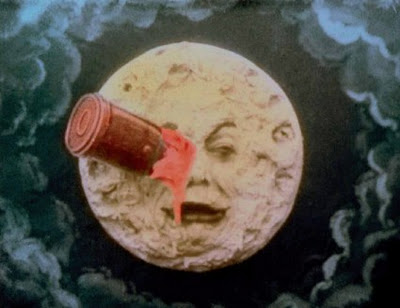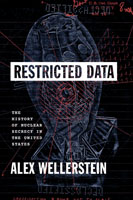Edward Teller is one of those terribly flawed, terribly interesting, terribly odd characters. I have to admit I probably have more sympathy for him than I ought to. His flaws were just so relatable, so human: he was deeply afraid of the Soviet Union, genuinely enthusiastic about the prospects of technology-based solutions, and, to put it frankly, could be wounded quite seriously by the thoughts and actions of others. When he mis-remembered things, I think he honestly mis-remembered them. When he argued for things, I think he honestly believed them.
Teller was plenty wrong on a number of subjects, but I don’t see him as particularly malicious. I find him far less odious than, say, Lewis L. Strauss, who was, by comparison, vindictive, petty, and—when it suited his purposes—a liar. Teller just wanted to be considered a helpful genius, and instead he is largely regarded as a nuke-kook and a war-monger. I like stories of unintended consequences, so I guess I like Teller’s story quite a bit, and feel for the guy.
Teller wanted to be regarded as a man with many brilliant ideas. Somewhere I read, or heard, the argument that he got this bug from his interactions with Peter Kapitza, who was famous for being an “idea man.” Wherever the source, it does seem like something he pursued self-consciously. Unfortunately the consequence of having many ideas is that many of them are going to be quite bad, and Teller was famously poor at sorting out which ones were worth saving. Herbert York, who worked with Teller quite a bit in the 1950s, put it this way to me:
A lot of people get a bad idea and then sort of are amused by it and drop it. Teller’s bad ideas he kept persisting, for ten, twenty, thirty years, in bad ideas, it’s always bad ideas. And at least in nuclear technology he didn’t have a lot of good ideas. He’s famous for the breakthrough on the hydrogen bomb, but that’s it! It’s hard to name another idea that really mattered. And even that one, it was actually, there were a lot of people throwing things back and forth. And they had been there, and he pulled it out again. He does deserve credit for that. 1
York’s exaggerating a bit — the guy had some history with Edward Teller, to say the least — but the sentiment that 95% of Teller’s ideas were bad ones is one you find repeated quite a lot by his colleagues.
All of this is a prelude for discussing what I consider to be one of the more amusing, and less-well-known ideas to have Teller’s name associated with it. I like to call it Teller’s “Moon Shot,” but it’s probably not what you think it is. (Or maybe it is. It depends how much of the Edward Teller mindset you’ve internalized…)
In early October 1957, the Soviet Union sent Sputnik up into space. Big shock (sort of), lots of fear, and so on. You know the story. Eisenhower was irritated, didn’t feel it required a massive knee-jerk response, but understood the importance of shuffling things around a bit, including the upgrading of the President’s Science Advisory Committee, pushing for the National Defense Education Act, turning NACA into NASA, and so on.
One of the other, lesser-known responses to Sputnik was the formation of an Ad Hoc Committee by the US Air Force (specifically the Air Research and Development Command) in mid-October 1957, chaired by Edward Teller. The “Teller Ad Hoc Committee” (as they were dubbed) was constituted of scientists from RAND and various Air Force contractors (Convair, Douglas Aircraft, etc.). Their purpose was to offer recommendations as to what the Air Force contribution could be towards “a United States technical demonstration which would counter world reaction to the USSR earth Satellite, Sputnik I.” The basic requirements for these “stunts,” as they called them, was that they could be implemented immediately, would not disrupt the Air Force’s ICBM program, and “would use whatever hardware is available including the ICBM-IRBM developments.”
When all you have is a hammer, every problem looks like a nail. When all you have is an ICBM, well…
The committee came up with a long list of recommendations. The one that stuck out to me, though, when I read their final report, was this one, on page 22 of the report:
…the most spectacular thing we can do in the immediate future representing the greatest step forward would be a flight to the near vicinity of the moon. This would also give us useful research data. Our first few shots probably could not circumnavigate or hit the moon but could reach its near vicinity. … The first payload for such a guided flight probably should be fluorscent powder to make a visible mark on the dark portion of the moon. Within 2 or 3 years with a crash program, it would be possible to develop a light weight atomic bomb which could be exploded on the moon and would give useful data about the composition of the moon’s surface. This, however, would not be considered part of our short term space flight program. 2
You’re going to put up a satellite? Well, we’re going to set off an atomic bomb on the Moon. Take that, Communism. Go big, or go home.
Fortunately it seems that even the Air Force thought this might not be the pro-US public relations bonanza that the Teller committee imagined. Considering the overheated coverage that resulted when NASA did as little as fly a regular satellite into the Moon a few years ago, I suspect setting off nuclear weapons on it would have resulted in more than a little criticism.
- From an interview I did with York in 2008. Some notes and quotes from the interview are here.[↩]
- “Report of the Teller Ad Hoc Committee,” (28 October 1957), copy in the Chuck Hansen papers, National Security Archive, George Washington University, Washington, D.C., Box 51, “Technical Reports, 1946-1973.”[↩]



[…] I’m still looking through the Legislative Archives. My little document-of-the-day relates to our good buddy, Edward Teller. If there’s one thing I’ve learned from looking at my blog statistics, […]
I think a particularly bad idea was project Pluto. Even worse than the atomic airplane or digging a harbor in Alaska with atomic explosions where the inhabitants were not particularly appreciative or needing a new harbor. There were an awful lot of bad ideas since WWII.
I agree—Pluto was probably one of the worst ideas they had. Talk about a Doomsday Machine…
[…] Edward Teller’s “Moon Shot” (12/12/2011) […]
I have always liked that Life magazine cover with Whipple and Hynek poring over data about Sputnik’s orbit.